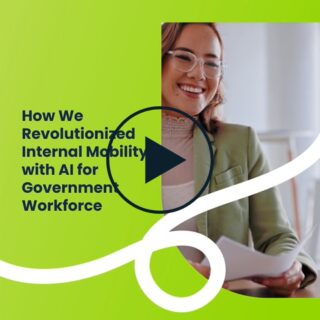Very strong job growth and low unemployment were the headlines in many of the world’s leading economies in the second quarter of 2018.
However, employers were faced with the increasingly difficult tasks of attracting and retaining talent in a historically tight labor market and responding to impending wage pressures. Uncertainties in the labor supply created by Brexit and immigration restrictions were exacerbated by the introduction of tariffs by the U.S. and the threat of trade wars in the coming months.
Strong Job Markets
Robust job markets and low unemployment were the major headlines in many of the world’s largest economies in the second quarter of 2018. In the United States, the number of job openings reached a record high. In the UK, the unemployment rate was at its lowest point in over 40 years. Canada continued to experience record low unemployment and Australia had consecutive months of job gains.
Faced with the tightest job markets in recent years, employers are focused on effective strategies to attract and retain talent. The difficult hiring environment is leading companies to rethink established norms in their recruitment processes. The strong demand for talent is showing no signs of easing. Companies seeking to compete successfully should consider developing strategic partnerships with organizations that can provide intelligence and expertise in recruitment and retaining talent.
Wages – The End of Stagnation
Wage pressures have intensified in response to the robust labor market. In the U.S., the period of relative stagnation in wage growth is perceived to be ending. In the UK, salaries for new positions rose at their fastest rate in three years. Canadian workers experienced their biggest wage increase in nearly a decade. And even without significant inflation, the national minimum wage in Australia is slated to increase 3.5 percent on July 1, potentially impacting salaries nationwide.
With record job openings available in many markets, employees are increasingly confident that they can easily find a new job. Since the top reason for workers to find a new job is to increase their salary, employers face the dual challenge of adjusting their wages as needed to retain their current workers and set starting salaries for new jobs at levels that will attract talent. Arriving at wage levels that will not unnecessarily strain profit margins is becoming an increasingly important task for human resource professionals.
Barriers to the Free Movement of Talent
Uncertainty over the availability of talent comprised of foreign nationals due to Brexit and immigration restrictions in the U.S. continued to raise concern. In the UK, sectors such as social care, technology and hospitality could be impacted especially hard. A recent survey found that one in ten hospitality workers are considering leaving the UK due to Brexit. The same survey found that 18 percent of hospitality managers are finding that recruiting new staff is more difficult due to Britain’s status change with the EU. In the U.S., restrictive immigration policies are blamed for the stall in IT job growth. Adding to the uncertainty of the U.S. workforce, the future status of the more than 600,000 U.S. residents granted permission to live and work under the Delayed Action for Childhood Arrivals (DACA) act was left unsettled by the U.S. Congress.
The policy-driven talent shortages in some countries are contrasted by others such as Japan and Canada that are making efforts to attract talent from abroad. The ambiguities in possible policy decisions regarding immigration and the free movement of labor drive the need for employers to craft flexible recruitment programs. Companies that find it difficult to find full-time talent may want to consider Managed Service Providers (MSPs) that provide scalability through contingent labor.
Social Media, Privacy and Sourcing
There are important developments affecting the way employers utilize social media for recruitment and employer branding. New regulations in Europe under GDPR went into effect on May 25. GDPR requires businesses to protect the personal data and privacy of EU citizens for transactions that occur within EU member states. GDPR applies to any collection of data for those living or working in the EU, regardless of the location of the organization accessing this data. The new rules include notification requirements, up-front security measures and other privacy safeguards.
The data breach at Facebook, the world’s largest social media platform, impacted 87 million users whose personal data may have been unknowingly shared with Cambridge Analytica. A study released in April showed that confidence in Facebook dropped by 66 percent since the Cambridge Analytica scandal emerged. In addition to implementing new compliance requirements necessitated by GDPR, businesses may need to review and adjust their recruitment and marketing practices in order to be effective in the evolving social media landscape.
Addressing the Skills Gap Part I: Apprenticeships
Employers that are struggling to find talent with the right skills can turn to a solution that pre-dates the industrial revolution: apprenticeships. Apprenticeships enable workers to gain valuable skills and experience so that they can be fully productive employees at a future date. In the United States, the Department of Labor announced resources for apprenticeships as part of a public/private partnership. For example, employers can apply for registered apprenticeships and create “on-the-job training contracts” and have costs reimbursed for up to 50 percent of wage rates paid to participants for up to six months.
In June, it was announced that the Skilling Australians Fund will be providing AUD 1.5 Billion to create as many as 300,000 apprenticeships. Public resources for apprenticeships are available throughout the EU, the UK, Canada and many other countries. To successfully incorporate apprentice programs as part of an overall talent attraction and training strategy, and learn the steps to take to access public funds, organizations can utilize the expertise of a Recruitment Process Outsourcing (RPO) company to ensure that its workforce has the right skills to succeed for many years to come.
Key Takeaways for Employers
Historically strong job markets combined with the uncertainties brought about by restrictions in immigration and trade requires employers to be both intelligent and agile in attracting and retaining talent. Organizations can expect to reap the benefits of a strong economy only if they have the talent to support the growth that can be generated by a prosperous environment.




